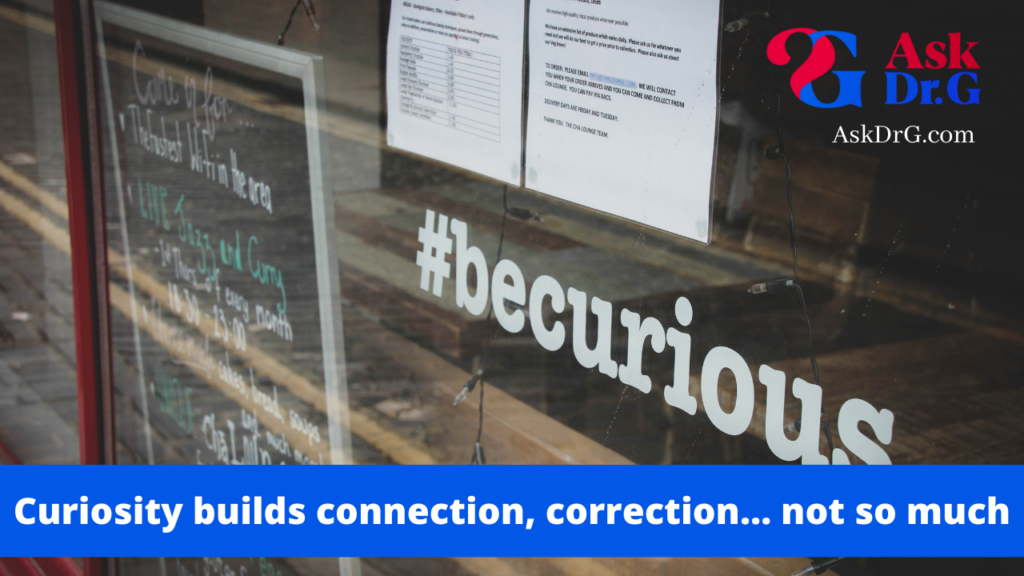Hi.
There’s a lot of command, correction and condemnation to be found online these days. I myself have been told what I should do, what I shouldn’t be doing and why I’m a terrible person for doing what I do (and, I have to assume, not doing what I don’t do) more times than I can count. Often, I figure that these interactions are of little to no value and I move past. Occasionally, though, I choose to approach the person with curiosity and see what happens.
“Are you interested in a dialogue about this?” I recently asked a couple of different people in a private message. One answered with a screed of anger and calls for me to be cancelled as a physician (at the very least). The other person, however, was open to a private conversation and we were both able to listen with just enough open-minded curiosity that we discovered we agree on about 80% of the topic and have stayed in touch since, finding more common ground.
Take a more common example. You ask a colleague or employee to finish something by the end of the day. They don’t. You’re pretty sure you know it’s because they have been procrastinating on this project (even though they’ve assured you several times that it’s “almost there”) and it just didn’t get finished. When you approach them about it, you can go with your assumption and say something like “I need you to put a lot more time in on that project.” Or you can lead with curiosity: “Can you give me an update on the project?”
Assumptions are normal – and you may very well be right. That’s not really the point here.
Assumptions lead us to jump to correcting, commanding (especially with family or people we know really well) or condemning. And those things isolate people. Occasionally, as a leader, you actually want to isolate someone as a way of letting them know their behavior is moving them towards getting fired.
The rest of the time, you want to strengthen each person’s connection to you, to the team and to your organization’s mission. Curiositydoes that.
Curiosity builds connection. Curiosity – truly open-minded curiosity – helps the other person know that you are interested in their ideas, their perspective and their experiences.
Curiosity doesn’t mean you will agree with what they say, see things the way they do, or endorse their plan. Good news, though – agreement isn’t necessary for connection. Curiosity is enough.
Is there a connection you could strengthen by showing a little curiosity? Comment and tell me!
All my best,
Dr. G




